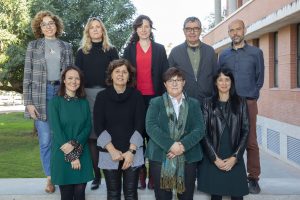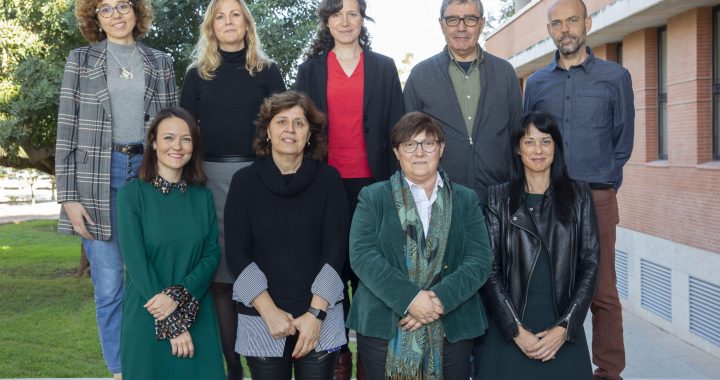
The research led by Professor María Jesús Muñoz Torres of the SoGReS-MF group has analysed the challenges in global sustainability of the textile sector and its connection with business management within the framework of a European H2020 project
A study developed by the Universitat Jaume I (UJI) shows that the fashion industry’s environmental reports are aligned with global challenges in the area of sustainability. However, they do not reveal their most relevant impacts along the textile production supply chain. The results of the European research led by Professor María Jesús Muñoz Torres of the SoGReS-MF group have just been published in the journal Environment, Development and Sustainability.
The simulations carried out by the SoGReS-MF group of the Faculty of Law and Economics show that the greatest environmental impacts of the fashion sector “do not take place in the last stages of product life through recycling or life extension processes, but rather during the first phases of the life cycle of raw material production and processing for garment manufacture”, as the authors explain. Furthermore, the most important impact “is related to water management, which is a very scarce resource in many areas of the planet, and to the consequences of production processes on human health” argues María Jesús Muñoz Torres, Professor of the Department of Finance and Accounting at the UJI, who also remarks that this study is being carried out within the framework of the European project “Sustainable Market Actors for Responsible Trade” (SMART) financed through the H2020 programme.
The conclusions of the study show that companies are focusing more on disseminating climate change indicators, in relation to the CO2 emissions responsible for global warming, taking into account international documents such as the United Nations Paris Agreement 2015. However, the greatest environmental impacts of fashion are concentrated in the stages of production of raw materials, due to high water consumption or pollution and the use of land, or during fabric and garment production, due to their effects on human health, both carcinogenic and not carcinogenic, generated by the toxicity of the processes.
Sustainable supply chain management in a global context: a consistency analysis in the textile industry between environmental management practices at company level and sectoral and global environmental challenges María Jesús Muñoz‐Torres. María Ángeles Fernández‐Izquierdo · Juana María Rivera‐Lirio· Idoya Ferrero‐Ferrero · Elena Escrig‐Olmedo. Environment, Development and Sustainability https://doi.org/10.1007/s10668-020-00748-4

